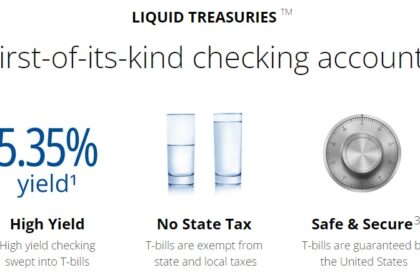In today’s fast-paced world, couples often face numerous challenges that can strain their relationships. These challenges can range from communication issues and financial stress to infidelity and loss of intimacy. When these problems arise, seeking professional help through couples counselling can be a crucial step in restoring harmony and strengthening the bond between partners.
At Bayridge Counselling Centres in Oakville, our experienced therapists are dedicated to helping couples navigate their difficulties and build healthier, more fulfilling relationships. In this article, we will explore the benefits of couples counselling Oakville, the process involved, and how it can help you and your partner.
Understanding Couples Counselling
What is Couples Counselling?
Couples counselling, also known as marriage therapy or relationship counselling, is a type of psychotherapy that focuses on helping couples improve their relationship. It involves working with a licensed therapist to address issues, enhance communication, and develop problem-solving skills.
Why Seek Couples Counselling?
There are numerous reasons why couples may seek counselling, including:
- Communication Problems: Difficulty expressing thoughts and feelings can lead to misunderstandings and conflicts.
- Infidelity: Rebuilding trust after an affair requires professional guidance and support.
- Financial Stress: Money-related issues can create significant tension in a relationship.
- Loss of Intimacy: Physical and emotional distance can erode the connection between partners.
- Parenting Challenges: Disagreements about parenting styles can cause friction.
Benefits of Couples Counselling
Improved Communication
One of the primary goals of couples counselling is to enhance communication between partners. By learning effective communication techniques, couples can:
- Express Feelings and Needs: Openly discussing emotions and desires without fear of judgment.
- Listen Actively: Paying full attention to the partner’s words and responding thoughtfully.
- Resolve Conflicts: Addressing disagreements in a constructive and respectful manner.
Rebuilding Trust
Trust is the foundation of any healthy relationship. Couples counselling can help partners:
- Acknowledge Betrayal: Recognizing the impact of infidelity or broken promises.
- Seek Forgiveness: Understanding the importance of genuine remorse and apology.
- Reestablish Trust: Developing strategies to rebuild trust over time.
Strengthening Emotional Connection
A strong emotional connection is vital for a fulfilling relationship. Counselling can help couples:
- Reconnect Emotionally: Rediscovering shared interests and values.
- Enhance Intimacy: Building physical and emotional closeness.
- Support Each Other: Being there for one another during challenging times.
Couples Counselling Process
Step 1: Initial Assessment
The counselling process begins with an initial assessment, where the therapist gathers information about the couple’s history, current issues, and goals. This step involves:
- Individual Interviews: Each partner shares their perspective on the relationship.
- Relationship History: Understanding the couple’s background and significant events.
- Identifying Issues: Pinpointing specific problems and areas of concern.
Step 2: Setting Goals
After the initial assessment, the therapist works with the couple to set realistic and achievable goals. This step includes:
- Defining Objectives: Identifying what the couple wants to achieve through counselling.
- Prioritizing Issues: Focusing on the most pressing problems first.
- Creating a Plan: Developing a roadmap for therapy sessions.
Step 3: Therapeutic Interventions
The core of couples counselling involves various therapeutic interventions designed to address specific issues and improve the relationship. Common interventions include:
- Cognitive-Behavioral Therapy (CBT): Identifying and changing negative thought patterns.
- Emotionally Focused Therapy (EFT): Strengthening emotional bonds and attachment.
- Solution-Focused Therapy: Concentrating on finding practical solutions to problems.
Step 4: Homework and Practice
To reinforce the progress made during therapy sessions, couples are often given homework assignments and encouraged to practice new skills. This step involves:
- Communication Exercises: Practicing active listening and expressing feelings.
- Conflict Resolution Techniques: Applying strategies to manage disagreements.
- Reconnecting Activities: Engaging in activities that foster emotional closeness.
Step 5: Review and Adjust
As therapy progresses, the therapist regularly reviews the couple’s progress and adjusts the treatment plan as needed. This step includes:
- Monitoring Progress: Assessing improvements and areas that need further attention.
- Adjusting Goals: Modifying objectives based on the couple’s evolving needs.
- Ongoing Support: Providing continuous guidance and encouragement.
Choosing a Couples Counsellor in Oakville
Qualifications and Experience
When selecting a couples counsellor, it’s essential to consider their qualifications and experience. Look for a therapist who:
- Is Licensed: Ensure they have the appropriate credentials and licensing.
- Has Experience: Preferably, they should have extensive experience in couples counselling.
- Specializes in Your Issues: Choose a therapist who specializes in the areas you need help with.
Compatibility and Comfort
It’s crucial that both partners feel comfortable with the therapist. Consider:
- Initial Consultation: Schedule a consultation to gauge compatibility.
- Therapist’s Approach: Ensure their therapeutic approach aligns with your needs.
- Comfort Level: Both partners should feel at ease discussing personal issues.
Location and Accessibility
Convenience is an important factor when choosing a counsellor. Look for a therapy center that:
- Is Nearby: Located within a reasonable distance from your home or workplace.
- Offers Flexible Scheduling: Provides appointments that fit your schedule.
- Has a Comfortable Environment: Ensures a welcoming and private setting.
Conclusion
Couples counselling in Okaville can be a transformative experience for partners facing difficulties in their relationship. By improving communication, rebuilding trust, and strengthening emotional connections, couples can overcome challenges and build a healthier, more fulfilling relationship. If you and your partner are struggling, don’t hesitate to seek professional help.








